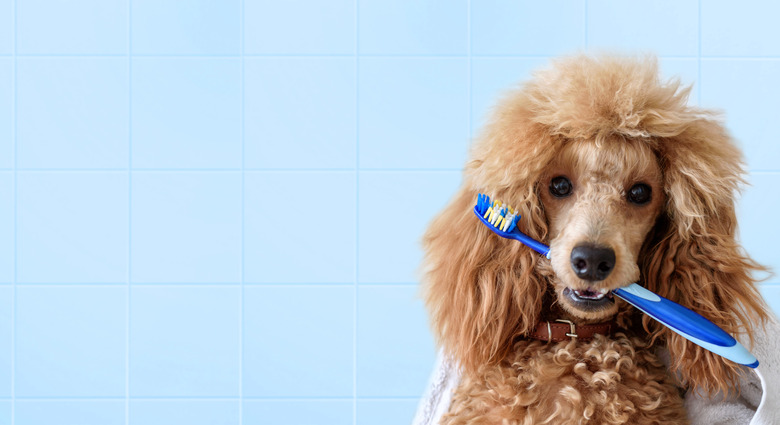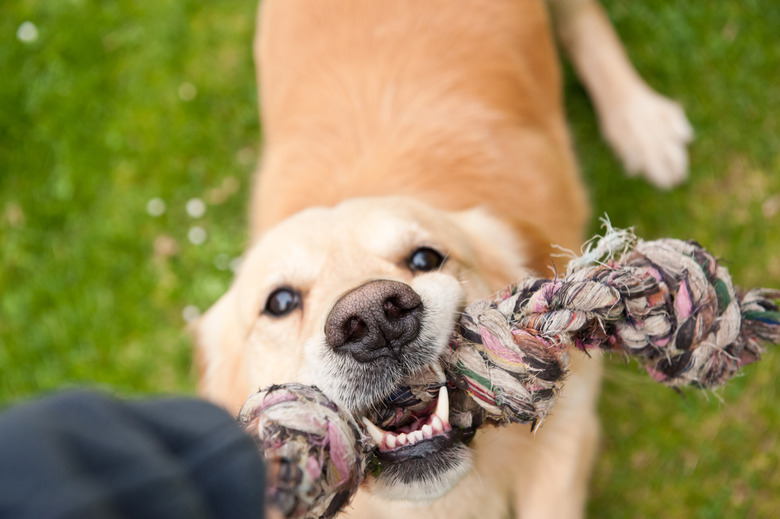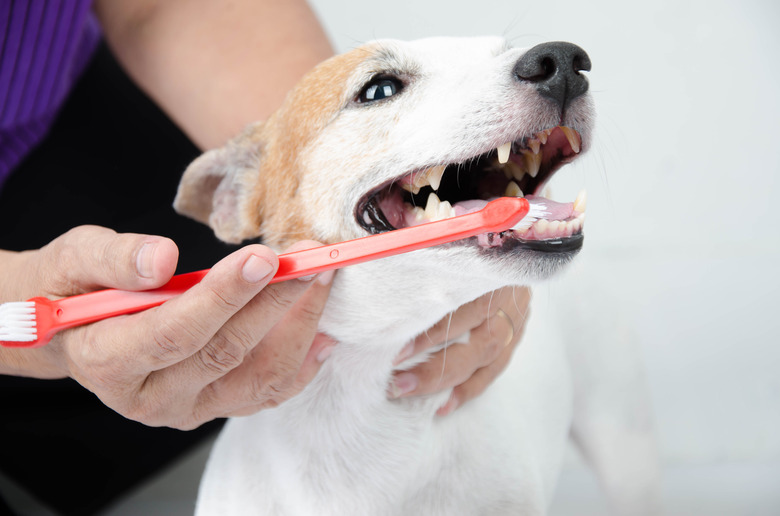Should I Floss My Dog's Teeth?
At least once a day, your dog comes up to you to lick your face and bam: you smell his bad breath. While you love your pup, and put up with his stinky breath because he's just so cute, you wonder if he has plaque and tartar that you should be addressing. After all, you don't want your pup getting gum disease.
One of the ways you know you can keep your dog's bad breath at bay is to brush his teeth. But should you also floss his teeth on top of that? If so, how do you actually go about it?
You may not have to pull out the floss, but you do have to ensure that you are keeping up with your dog's dental hygiene.
Is it necessary to floss my dog's teeth?
Is it necessary to floss my dog's teeth?
It's a good idea to floss your dog's teeth if you can. Taking care of your dog's teeth will help prevent plaque and tartar, which can lead to bad breath, gum disease, and tooth decay. Poor dental hygiene can also cause your dog to excessively drool and have inflamed gums. He could develop cysts under his tongue or tumors in his gums, too. If your dog's gum and tooth problems get very serious, he may develop toxins in his mouth that go into his bloodstream and cause heart and kidney issues.
Along with brushing his teeth regularly, using some sort of flossing mechanism can keep your dog's teeth and gums healthy by removing plaque. This is easier said than done, so read on for options.
- If your dog is trained to tolerate their mouth being touched (or if you just have a dog with a very chill nature): purchase some unflavored floss and some dog toothpaste. Give him a little bit of toothpaste to try. If the dog reacts
well, then put some dog toothpaste on the floss, and begin flossing as best you can. Give him treats along the way, and afterward, to reward this behavior.
- If your dog is fidgety or doesn't like their mouth being touched, or if you tried the above method and couldn't get your dog to sit still, don't fret. Instead of trying to wrangle your dog to floss his teeth, get them a flossing bone, which is a rope that contains fluoride and baking soda and cleans
his teeth as he chews on it.
How often should you clean your dog’s teeth?
How often should you clean
your dog's teeth?
At the very least, you should be brushing and flossing your dog's teeth two to three times a week, though doing it every day is ideal. Once a year, you need to take your dog to the veterinarian for a deep cleaning, which will cost at least a few hundred dollars and may be done with anesthesia. Your veterinarian might also take X-rays to make sure your dog's teeth are healthy.
Easy ways to clean your dog’s teeth
Easy ways to clean your dog's
teeth
If you don't have time to clean your dog's teeth every day, then you should at least do the minimum two or three times a week and then ensure he has toys and treats that clean his teeth on the other days. You can get him a textured chew toy that will clean his teeth and gums and remove plaque. One popular treat for dental hygiene is Greenies, which contain all-natural ingredients, freshen your dog's breath, and clean plaque and tartar.
You should always use doggy toothpaste with natural ingredients as well as a dog toothbrush that you slip on your finger. It's easy to use and your dog may like it better than a regular dog toothbrush. You can also add doggy mouthwash to your dog's water bowl, as long as it doesn't contain a toxin like xylitol, which is extremely dangerous for dogs.
It's always a good idea to ask your veterinarian for recommendations for brushing and flossing your dog's teeth, too. They will let you know if you're contending with some serious issues and need to brush and floss more often or if you can use mostly toys and treats to keep his teeth clean and healthy.
Conclusion
Conclusion
Flossing your dog's teeth will help to prevent gum disease and other health issues. If you can't floss his teeth with unflavored floss, then consider buying a flossing bone. Of course, you'll need to brush his teeth regularly and take him in for a deep cleaning once a year as well.
Always check with your veterinarian before changing your pet's diet, medication, or physical activity routines. This information is not a substitute for a vet's opinion.


